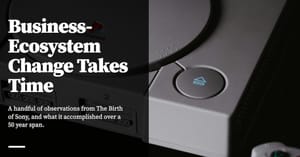The biggest lesson I learnt from writing a book was to stop beating myself up over my work.
I’ve touched on this before, in a post titled In An Age of Knowledge Work, Emotional Regulation is a Superpower. I wrote, then:
I reflected on the fact that I had — despite these challenges — completed a cool 15,000 words, or three chapters, in the six months since I announced my plans. But I realised that so much of my procrastination stemmed from my blaming myself in those same six months.
My coach's gentle probing helped me see that much of my pain was self-inflicted. I couldn’t write as a result of those events, yes. But just as harmful were the weeks in which I wallowed in self-hate, torturing myself over all the time I had not spent working on the book. The external events were perhaps unpreventable. But the self-flagellation was entirely my own doing.
Last Friday, I launched Keep Your People — The Startup Manager’s Guide to Employee Retention. I’m quite pleased with the book, even though I know that I could’ve finished it quicker if I hadn’t spent so much of the past 11 months wallowing in self-hate. I completed the first draft of the book two months after I wrote the post on emotional regulation. I launched a few weeks after.
I think it’s clear that I figured out a way to stop beating myself up over my non-productivity. So what changed?
The answer is that I built a healthier relationship with my work. Before writing Keep Your People, I would set ambitious goals for myself. When I hit them, I felt happy. When I didn’t, I felt terrible. This approach applied to everything in my career: to competitive Judo, to my programming skills, to my management practice, and to broader goals around building career moats. It got me pretty far.
When I left my last job to start my own business, however, things got tough. Everything was self-directed. I would continue to set ambitious goals for myself, and fail to hit them — because of course I would, nobody could hit ambitious goals forever. I would then blame myself for my lack of productivity.
The turning point was the episode that I recounted in my Emotion Regulation post: a friend sat me down and told me how he nearly burnt out doing the same things, when he was working a big corp job in Hong Kong. And a performance coach got me to realise I was hurting myself with my obsession over ‘doing the work’.
Still, I struggled. Knowing that you shouldn’t blame yourself for your lack of productivity is half the battle. The other half is finding a mindset tweak that works.
What worked for me was a mantra that I started repeating to myself, whenever I was at risk of self-blaming. That mantra is adapted from something Amy Hoy once said, in one of her courses:
“The work is the work. It is not more nor less than the work. It just is.
“You are not morally superior for doing the work, and you are not a moral failure if you fail to do what you set out to do. All the work is is that it’s something that will give you a set of preferred outcomes if you do it. If you work on the book (or the side project, or record the podcast, or do the design brief), that work will obtain for you a certain set of desirable outcomes. If you don’t do the work, you will not have those outcomes.
“That’s all there is to it.”
This mantra is a calibration device, straight out of the Cognitive Behavioural Therapy toolbox. It has made all the difference.
Sometimes I find myself dragging my feet to work. I procrastinate, like most of us do when we’re left to our own devices. But then I think to myself “the work is the work, and is nothing more than the work” and then I find myself able to approach the computer again without fear, without blame, without self-loathing.
And I find that I’m able to do the work. Like this morning, where I spent three hours drinking Diet Cokes and reading articles and thinking about the KYP launch. I thought “the work is the work”, and then I sighed, and got off the beanbag, and started writing. Like tomorrow, where the same challenge will repeat itself all over again, but for code.
The next time you see an indie creator or a solopreneur, you should probably understand that they have something they can use to bring them back to the work ... when they inevitably slip up.
This is not something you’ll learn at a normal job, I think. And it’s not something that’s clear when you’re watching a solopreneur working from the outside. Instead, it is something that you will learn when you do a ton of self-directed work — when you start a side project, or throw yourself solo at a business, or get serious about something long-term that you care a lot about.
Some people are born with a healthy relationship with work. Like Murakami, who famously started writing while he was running a bar. Others aren’t so lucky. We have to learn it the hard way.
I’m hopeful that you’ll save yourself from some of the pain I experienced. This hope is despite knowing that we can only learn what we are ready to learn.
I was ready to learn this lesson when writing Keep Your People. I hope you’ll have an easier time of it when it’s your turn to grapple with self-directed work — should your career take you down that path. Godspeed, and good luck.
Originally published , last updated .





